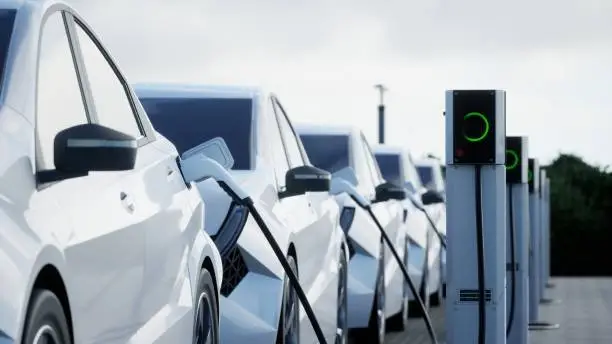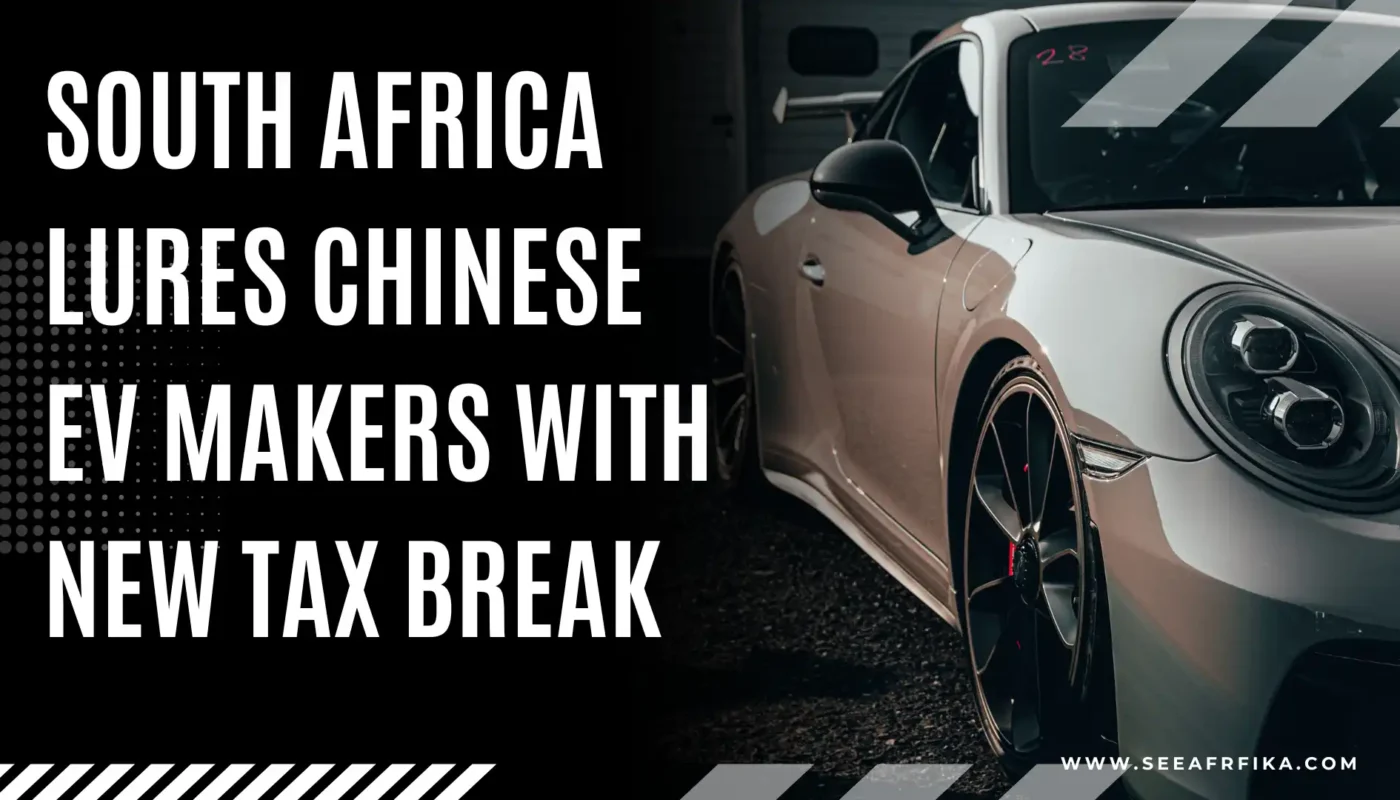South Africa is making headlines as it lures Chinese EV makers with an attractive new tax incentive. This initiative aims to boost the country’s booming electric vehicle (EV) industry, which is valued at $27 billion.
The South African government hopes that this move will enhance its automotive sector and attract significant foreign investment.

Tax Break Details
On December 30, 2024, President Cyril Ramaphosa signed a law that offers a 150% tax deduction on investments made in the production of electric and hydrogen-powered vehicles.
This tax break is designed to stimulate interest from Chinese EV makers, who are looking for new markets amid increasing geopolitical tensions and trade barriers in other regions.
The introduction of this tax break is a strategic effort by South Africa to attract Chinese EV makers seeking to expand their operations internationally. With the U.S. imposing high tariffs on Chinese-made vehicles, many manufacturers are exploring opportunities in Africa.
South Africa’s favorable investment climate and skilled workforce make it an appealing destination for these companies.
Industry Response
Several Chinese EV makers have already shown interest in South Africa. Reports indicate that three major manufacturers have signed non-disclosure agreements with the Automotive Business Council.
While their identities remain confidential, the interest reflects the potential for growth within South Africa’s automotive sector.
Benefits of the Tax Break
The tax incentives are expected to significantly lower production costs for Chinese EV makers. This move will not only promote local manufacturing but also create jobs in the region.
By encouraging investment in new technologies, South Africa aims to position itself as a leader in the electric vehicle market.
Here are the key benefits of this tax break for Chinese EV makers:
1. Reduced Production Costs
The primary advantage of the tax break is the reduction in production costs for Chinese EV makers. By allowing a 150% tax deduction, manufacturers can reclaim a substantial portion of their investment, making it financially viable to set up production facilities in South Africa.
2. Increased Profit Margins
With lower production costs, Chinese EV makers can enjoy higher profit margins. This financial incentive allows them to price their vehicles competitively while still maintaining profitability, which is crucial in the increasingly competitive automotive market.
3. Enhanced Investment Appeal
The tax break enhances South Africa’s appeal as an investment destination for Chinese EV makers. As global demand for electric vehicles rises, this incentive makes it more attractive for manufacturers to establish operations in South Africa rather than other regions.
4. Market Access
Investing in South Africa provides Chinese EV makers with access to the broader African market. As the continent’s largest automotive market, South Africa serves as a strategic entry point for expanding into neighboring countries and tapping into emerging markets across Africa.
5. Support for Local Manufacturing
The tax incentives encourage Chinese EV makers to invest in local manufacturing capabilities. This aligns with South Africa’s goal of boosting its automotive industry and creating jobs, fostering a mutually beneficial relationship between foreign investors and the local economy.
6. Alignment with Global Trends
As global shifts towards sustainable transportation accelerate, the tax break positions South Africa as a forward-thinking player in the automotive industry. This alignment with international trends makes it easier for Chinese EV makers to justify their investments in electric vehicle production.
7. Access to Raw Materials
South Africa is rich in essential raw materials needed for battery production, such as manganese and platinum. By investing in local production, Chinese EV makers can secure a reliable supply chain for these critical components, reducing dependency on imports.
8. Government Support and Stability
The introduction of the tax break signals strong government support for the automotive sector, particularly for electric vehicles. This stability reassures Chinese EV makers that their investments will be backed by favorable policies and a commitment to developing the industry.
Conclusion
In conclusion, South Africa lures Chinese EV makers through strategic tax incentives aimed at fostering growth in its automotive industry. The government is actively engaging with various stakeholders to ensure that the necessary infrastructure and support systems are in place for successful investment.
With the new tax break, South Africa is poised to become a key player in the global electric vehicle market. The collaboration with Chinese EV makers could lead to advancements in technology and manufacturing processes, benefiting both parties involved.
With continued support from the government and interest from international manufacturers, the future looks bright for South Africa’s automotive sector.
In a piece of similar news, Spiro announced its plans to boost electric vehicle production in Nigeria with a new plant.




